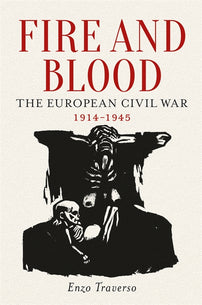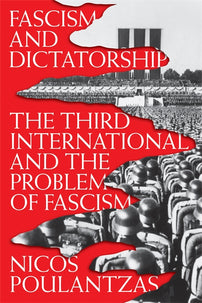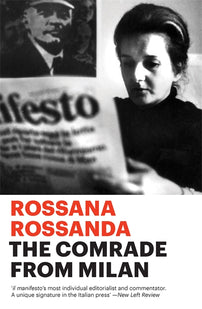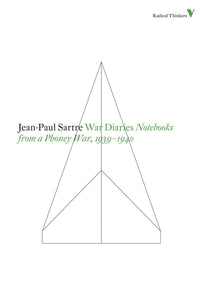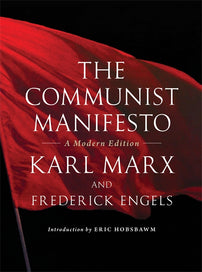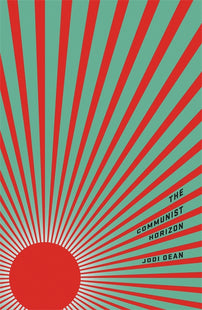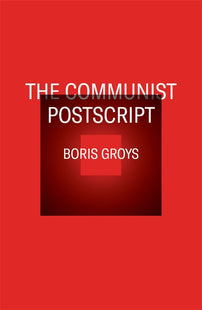For Rossana Rossanda, Communism Was a Choice Compelled by Reason
In this excerpt, taken from an unpublished 2002 interview, Rossana Rossanda opens up about becoming a Communist in Fascist Italy

By Giulia Albanese
An excerpt from an unpublished 2002 interview on Rossana Rossanda's political formation. The full text will be published in issue 61 of Venetica before the end of 2021. "It's hard to understand now what the regime was, or had become, in the 1930s, such that a girl who wasn't completely stupid could suddenly open her eyes in 1943," Rossanda explains. "Antonio Banfi had advised me to read Laski, Marx and Lenin. The Communists said: there is another way of seeing things, the world, life, responsibilities; you've been blind, you didn't want to see".
***
In September 2002, Rossana Rossanda was interviewed as part of a project organised by the Venetian Institute for the History of the Resistance and Contemporary History (Iveser), collecting accounts from partisans. She was interviewed on her experience of the anti-fascist resistance and its relationship with the Venice of the 1930s and 1940s, but the text was never published, as Rossanda was already working on her autobiography, which came out in Italian 2005. The interview spoke of her initiation in politics, its connection with her experiences in the Venice of that era, her brief spell at Padua University, the relationship between intellectuals and fascism, fascism as totalitarianism, and the relationship between life and memory. The full text, including many original cues to reflection, will be published in issue 61 of Venetica, (2021/2), due to come out by the end of 2021.
A year after Rossanda’s passing on 20 September 2020, Il Manifesto published a short extract from this forthcoming text, speaking of her political formation and Italians’ relationship with fascism.
***
All summer [of 1943] I’d been trying to understand. I had been a silly girl, convinced that I could make my own way, study, not get involved in politics. But then I found myself faced with this inglorious collapse, which had everything to tell us about what the regime had been, and about a mistaken war. For the first time I felt involved as a citizen — living a private life no longer seemed like a personal preference but a kind of negligence allowing terrible mistakes to go on happening. And the Badoglian summer [Marshal Pietro Badoglio’s takeover as prime minister after 25 July 1943, when the King and Fascist hierarchs abandoned Mussolini] left me stunned. The Fascism that had taken us to war had now fallen, but the war continued — how? (...) The newspapers of the Badoglian period — have you ever seen them? — were dismal, unforthcoming.
So, the feeling of being without a compass — and that there is a kind of guilt, in not finding one’s bearings — preceded the crash of 8 September. When that day came, the monarchy bailed out [fleeing the capital without giving orders to Italian troops] and we were occupied by the Germans. The anti-fascist parties had been rather cautious over the summer — there was no talk of the Communists at all. Someone like me, who had no particular points of reference at home — and at school had had some teachers who didn't talk about eagles and pennants, but who didn’t talk about the racial laws either — didn't know where to turn. (...)
I don't remember how I knew or who first told me that [Milan university philosophy professor] Antonio Banfi must be a communist — it was all cautious whispering. Someone said: Banfi is a communist, there had to be some truth to this, and I went to him. I know that I went straight over to him during a break and asked him: "Are you a communist? Because I don't know what to do”. [I thought that] either he would shoo me away or he would help me. He understood that I was one of the many people looking for help and he trusted me, as if blindly, as I did him.
(...) The first time, Banfi didn't tell me: “Get in touch with this and that communist”, but “Read these books, then come and tell me what you think of them”. He went over to his desk and wrote some titles on a piece of paper. I unfolded it on the train — and these are the things you remember for the rest of your life. It was a thin little piece of paper with a university letterhead, it must be lost now like almost everything of mine. He had listed two books by Harold Laski, Karl Marx's Eighteenth Brumaire and The Civil War in France, Lenin's State and Revolution, and “whatever you can find by S.” Well, it was a good list for an initiation. But then I felt a bit of a stir: so, it was true then, Banfi really was a communist, the real kind, not a sympathiser (a word I didn't know at the time).
[book-strip index="1" style="display"]All I knew about the Communists was that they were determined and fearsome people (...) The texts that Banfi suggested that I should read didn’t just say: take action against the Germans, but also: there is another way of seeing things, the world, life, responsibilities; you’d been blind, you hadn’t wanted to see. And — I hope this doesn't make you laugh — it seemed to me that they were forcing me to give up what had been valuable to me — painting, research, beauty. By that I mean not luxury in terms of consumerism, which wasn’t all the rage at the time — and we were very poor — but the luxury of beautiful things. But, anyway, Banfi was surprised to see me come back a week later... I had made my decision. Yes, it was an intellectual choice, a reasoned choice which reason compelled. Those texts were right.
(...) A few years ago in Turin, at the end of a talk, a beautiful lady came to greet me, asking: “Do you remember? We were at school together, I am Liliana.” Of course I remembered her, with a beautiful blonde plait around her head. And she asked me: "Tell me, what was the turning point?" "Which?" "How did you become a communist? How did you change your thinking?" I said, "What thinking was that, then — was I a fascist?" She more or less answered "yes": she was embarrassed, we talked for a couple of minutes and then everyone left. I felt a bit shocked. Had I been I a fascist? When? I can only have seemed like that to her in the two years of high school we had together, when I was 15/16 and 16/17. Or before that at the Manzoni grammar school? I wondered what the hell I could have said or done, and I couldn’t think of anything. Has memory kindly erased some awfulness of mine? I only remember that I was happy to have the uniform of a young Fascist because it was my first trouser suit, blouse, blazer and tie.
Before that, as a young Italian woman, it was a shapeless cape, which we only wore to recitals (and also a dress-suit). What could I have said or done in that suit? Perhaps that people should focus on the war, sacrifice themselves, think of the men at the front, of victory? I don't know.
My memory doesn't help me, and it doesn't deliver me any blame. I do remember going to listen in on a couple of lectures on fascist mysticism, which had been introduced at the university in autumn 1943. There was a certain Atzeni, all dressed up in a black uniform, babbling on about fascist socialism; he wasn't even interesting in a negative way. (...)
[book-strip index="2" style="display"]It's hard to understand now what the regime was, or had become, in the 1930s, such that a girl who wasn't completely stupid could suddenly open her eyes in 1943. Add to that personal selfishness, and women’s habit of not getting involved in politics — the basic reason was that the country had become inert. The greatest damage that a totalitarian regime does is not that it stops you from doing this or that, that it challenges you every day. It’s that if you don't do politics, it lets you live your life. Renzo de Felice's claim that everyone who wasn't an anti-fascist was a fascist isn’t true; perhaps they were indifferent or had fallen into resignation, perhaps they minded their own business, perhaps they made headway for themselves doing a good job as a technician or teacher or scholar. As it happens, the same thing happened in the USSR in the 1950s and after, once the heaviest repression was over. But conversely, it is not true that those who were non-fascists, or contemptuous of fascism, were therefore anti-fascists, in the sense of: "I am doing something to bring this lot down".
The non-fascist milieu I had come to know in Milan before university and then at university up till 1943 expressed a certain contempt which educated people had toward fascist rhetoric — “what’s with all these eagles, ears of corn, and suns... it's nonsense”. (...) My father didn't buy the [fascist] Popolo d'Italia but you were still bound to hear the fascists on the radio or in the Luce films. For a while the distrust of newspapers stuck with me — perhaps even now. But it was an underestimation, perhaps an unconscious alibi. Not being a fascist, or rather being a non-fascist, is not the same as being anti-fascist. And it was the same at school, too — where, paradoxically, my teachers were not fascists, as they had been trained up beforehand.
Fascism’s slow invasion, its mounting pervasiveness, as described by Angelo d'Orsi — in a book not to the liking of Norberto Bobbio or indeed Pietro Ingrao — explains how the world around me appeared to me as a girl. At my age, now that I can think back, I don’t remember that there was terror. There was silence. The cuts had already been made, the communists had already been reduced to nothing, and the Jews weren't kicked out until '38.
Translated by David Broder

